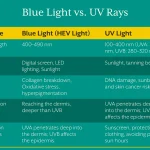
If you suffer from cystic acne, your best bet is to consult a dermatologist. They can administer cortisone injections to dry up the affected areas. However, not everyone has time to make the appointment and ad hoc injections will not be effective in curing the acne over the long term. Here are some other options. If none of the above methods seem to work, consider using an over-the-counter remedy.
Cysts and nodules are types of acne that appear together or on their own. They are caused by a clogged pore under the skin, and the inflammation that builds up inside spills out into the surrounding tissue. Because they develop deep within the skin, cysts tend to leave a scar, making them much more uncomfortable to live with than other forms of acne. You may also experience redness or pink patches in the affected area.
Inflammatory acne treatment is usually a combination of topical and oral medications, such as benzoyl peroxide and retinoids. Antibacterial body wash is a good idea for high school and college-age males. But these products may cause a reaction in people with sensitive skin. Consequently, it is important to patch-test any new product before using it on your body. If you are pregnant, your dermatologist may prescribe an oral contraceptive that contains an estrogen-like hormone.
Among the prescription treatments for cystic acne, isotretinoin is the most effective. This vitamin A drug is taken every day. However, it does come with serious side effects. Taking oral antibiotics may also be helpful for patients with cystic acne because they reduce the amount of bacteria in the affected area. However, these drugs do not reduce the production of sebum or remove dead skin cells. So, these methods will only help you with a small part of your cystic acne problem.
The most common type of cystic acne treatment is an antibiotic. The antibiotics used in these drugs will kill the bacteria that causes cystic acne. This treatment is not effective if your acne is deep inside your skin. In severe cases, antibiotics alone will not work. And you will be left with a scarring that will stay on your face for the rest of your life. That’s why the best treatment for cystic acne is to seek treatment from a dermatologist right away.
The best cystic acne treatment will require a combination of medication and changes to your skin care routine. If you have severe cystic acne, however, over-the-counter treatments won’t be effective. It is best to consult a dermatologist who will prescribe medications to control your hormones and keep the acne at bay. However, if the medication doesn’t work, you may have to try a different approach. You can also try changing your lifestyle and eliminating stress.



